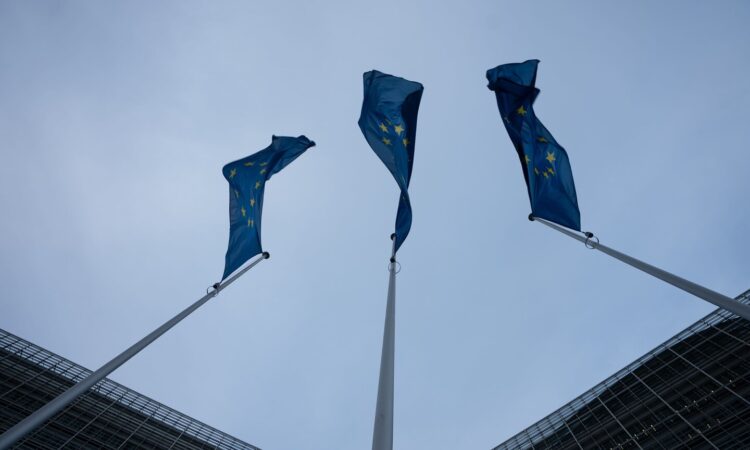
In early 2021, Belgian police began to investigate possible interference by a foreign government in the EU’s decision-making, acting on information from the country’s intelligence services, according to newspaper Le Soir. Police made more than 20 searches at homes and offices of European lawmakers and parliamentary assistants in Brussels — the country’s capital and the heart of EU decision making — and in Italy, seizing about €1.5 million euros in cash. In December 2022, they arrested four suspects, including Greek lawmaker and former newsreader Eva Kaili, her Italian partner Francesco Giorgi and Italian former European Parliament member Pier Antonio Panzeri, and charged them with being part of a criminal organization, money laundering and corruption. Kaili was stripped of her role as one of 14 vice presidents of the assembly.
2. What are they alleged to have done?
The case focuses on “a Gulf nation that’s suspected of having sought to influence economic and political decisions of the European Parliament,” according to a statement from Belgian prosecutors to Le Soir. They believe cash and other gifts were used to secure favors from people of influence in the legislature. Investigators were focusing on Panzeri’s time as chair of a parliamentary human rights committee, when he worked with the government of Qatar, according to a statement to prosecutors by Giorgi and a former assistant to Panzeri cited by the paper. Both Qatar and Morocco were mentioned in documents related to the case. Kaili, Panzeri and the government of Qatar denied any wrongdoing. Giorgi admitted he was involved in activities led by Panzeri aimed at favoring the interests of Qatar and Morocco in EU affairs, Le Soir reported. Former EU commissioner Dimitris Avramopoulos also came under fire when it emerged that he’d accepted €60,000 for work carried out for a non-governmental organization run by Panzeri that was linked to the graft allegations.
3. Why is this significant for the EU?
Although it’s not as influential as the EU’s other main institutions — the European Commission and the European Council — the European Parliament is seen as a defender of ethical standards in the bloc, with a history of holding its other bodies to account. In the late 1990s, the parliament forced the commission’s entire political leadership to quit over alleged fraud and corruption involving a French commissioner, Edith Cresson. The legislature has intervened in other appointments to the EU executive since then.
4. What are the EU’s critics saying?
Britain’s right-wing press leapt on the latest scandal as proof that the country was right to quit the bloc. Hungarian Prime Minister Viktor Orban suggested the European Parliament was guilty of double-standards in calling out his government for cronyism. French hardline nationalist leader Marine Le Pen, who in the past campaigned for her country to quit the EU, hit out at “all these corrupt people who are supposedly in the ‘camp of the good.’”
5. What’s the European Parliament doing about it?
It’s hurrying to bolster its anti-graft defenses to avoid further damage to its reputation. The assembly’s president, Roberta Metsola, said she would leave “no stone unturned” in fighting attempts to exert undue influence on lawmakers. She called for improved protections for whistleblowers, an investigation into the funding of lobby groups that work with the parliament and more scrutiny of how its lawmakers interact with non-EU governments. This could include a “transparency registry” to record meetings of parliamentarians with representatives of third countries. European Commission President Ursula von der Leyen repeated a call for the establishment of an EU-wide ethics body, an idea that the parliament ignored when she first proposed it in March 2022.
6. What does it mean for Qatar?
The Gulf state has been trying to improve its image abroad after facing criticism over the treatment of migrant workers during preparations to host the soccer World Cup in late 2022. It appeared to have found an ally in Kaili, who said in November that Qatar was “a front-runner in labor rights.” Before the scandal, the European Parliament had been expected to approve a loosening of visa rules for Qataris holidaying in the EU and to ratify a 2019 agreement on adding more flights between Qatar and the bloc. The scandal has put the fate of those measures in doubt. The EU will need to tread carefully as its member states are trying to strike deals with Qatar to buy more of its natural gas and alleviate an energy crisis gripping the region.
More stories like this are available on bloomberg.com






